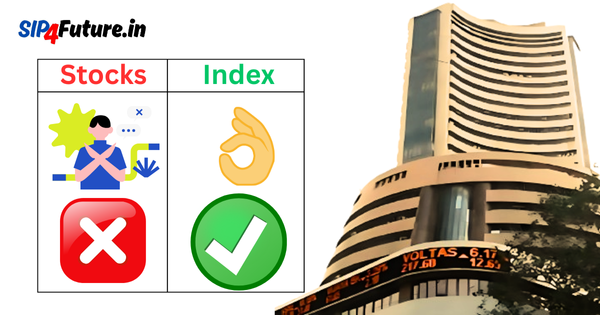IndiaMART InterMESH, a titan in India’s B2B e-commerce landscape, has made a bold move by acquiring full ownership of Livekeeping for ₹26.78 crore, cementing its position as a wholly owned subsidiary. This acquisition, announced on May 9, 2025, underscores IndiaMART’s commitment to expanding its service portfolio and enhancing its market dominance. With its stock trading at ₹2241.10 on the National Stock Exchange (NSE)—down 2.28%—the market is closely watching how this strategic decision will shape IndiaMART’s future. This article delves into the acquisition’s implications, the broader B2B sector, government policies, global market influences, and IndiaMART’s stock performance, offering a comprehensive view of this pivotal moment.
What Does IndiaMART’s Acquisition of Livekeeping Mean for Its Growth?
Strengthening the B2B Ecosystem
IndiaMART, a leading online marketplace connecting buyers and suppliers, has long been a cornerstone of India’s B2B e-commerce sector. The acquisition of Livekeeping, a platform focused on accounting and business management solutions, aligns seamlessly with IndiaMART’s mission to offer end-to-end services. By integrating Livekeeping’s technology, IndiaMART can provide enhanced tools for small and medium enterprises (SMEs), streamlining operations like invoicing, inventory management, and financial tracking.
This move is seen as a positive step, as it diversifies IndiaMART’s offerings beyond its core marketplace model. According to a report by Moneycontrol, the acquisition is expected to create operational synergies, enabling IndiaMART to cater to a broader range of business needs. For SMEs, this translates to a one-stop platform that combines sourcing, accounting, and business management—a game-changer in a competitive market.
Financial Implications of the Deal
The ₹26.78 crore acquisition is a modest investment for IndiaMART, given its market capitalization of over ₹13,000 crore as of May 2025. The deal was funded through internal accruals, reflecting the company’s strong financial health. Analysts suggest that this acquisition will not strain IndiaMART’s balance sheet but rather enhance its revenue streams by tapping into Livekeeping’s existing client base and subscription-based model.
| Key Financial Metrics (IndiaMART) | Value (as of May 2025) |
|---|---|
| Stock Price (NSE) | ₹2241.10 |
| Market Capitalization | ~₹13,500 crore |
| P/E Ratio | 45.2 |
| Revenue (FY24) | ₹1,200 crore |
| Net Profit (FY24) | ₹350 crore |
Source: BSE India and company filings
How Is the B2B E-Commerce Sector Evolving in India?
The Rise of Digital Marketplaces
India’s B2B e-commerce sector is witnessing exponential growth, driven by digital adoption among SMEs. According to a report by Invest India, the B2B e-commerce market is projected to reach $200 billion by 2030, fueled by increasing internet penetration and smartphone usage. IndiaMART, with its vast network of over 10 crore registered buyers and 70 lakh suppliers, is at the forefront of this transformation.
The acquisition of Livekeeping positions IndiaMART to capitalize on this growth by offering value-added services. Competitors like Udaan and TATA Digital are also expanding their footprints, but IndiaMART’s focus on integrating technology-driven solutions gives it a competitive edge.
Government Initiatives Boosting the Sector
Government policies have played a pivotal role in shaping the B2B e-commerce landscape. The Digital India initiative and the Make in India campaign have encouraged SMEs to adopt digital platforms for sourcing and selling. Additionally, the implementation of the Goods and Services Tax (GST) has simplified tax compliance, making platforms like IndiaMART indispensable for businesses navigating the new tax regime.
Recent government announcements, such as the Open Network for Digital Commerce (ONDC), aim to democratize e-commerce by creating an interoperable ecosystem. IndiaMART’s acquisition of Livekeeping aligns with this vision, as it enhances its ability to offer integrated solutions that comply with regulatory frameworks.
When Did Global Market Trends Influence IndiaMART’s Stock Price?
Current Trading Conditions
On May 9, 2025, IndiaMART’s stock closed at ₹2241.10 on the NSE, reflecting a 2.28% decline. This dip can be attributed to broader market volatility, as global indices like the Dow Jones and NASDAQ experienced fluctuations due to inflationary pressures and geopolitical tensions. The Indian market, tracked by the NIFTY 50, also saw a cautious trading session, impacting stocks like IndiaMART.
Despite the short-term decline, analysts remain optimistic about IndiaMART’s long-term prospects. The acquisition of Livekeeping is viewed as a strategic move that could mitigate external market pressures by diversifying revenue streams.
Global E-Commerce Trends
Globally, the B2B e-commerce sector is undergoing a paradigm shift, with platforms like Alibaba and Amazon Business setting benchmarks for innovation. The integration of AI, machine learning, and cloud-based solutions is reshaping how businesses operate. IndiaMART’s acquisition of Livekeeping aligns with these trends, as it enhances its technological capabilities to compete on a global stage.
| Global B2B E-Commerce Trends | Impact on IndiaMART |
|---|---|
| AI-driven personalization | Enhanced buyer-supplier matching |
| Cloud-based solutions | Livekeeping’s accounting tools |
| Cross-border trade growth | Potential for global expansion |
What Are the Risks and Opportunities for IndiaMART Post-Acquisition?
Opportunities for Growth
The acquisition of Livekeeping opens several avenues for IndiaMART. First, it strengthens its value proposition by offering integrated solutions that cater to the evolving needs of SMEs. Second, it positions IndiaMART to tap into the growing demand for SaaS (Software as a Service) solutions, a market expected to grow at a CAGR of 18% through 2030, per Statista.
Furthermore, IndiaMART’s strong brand equity and extensive user base provide a ready market for Livekeeping’s services. Cross-selling opportunities could drive higher subscription revenues, boosting overall profitability.
Potential Risks
However, the acquisition is not without challenges. Integrating Livekeeping’s operations and technology could pose short-term hurdles, including potential costs related to system upgrades and employee training. Additionally, competition in the SaaS and B2B e-commerce space is intensifying, with players like Zoho and Freshworks vying for market share.
Market sentiment, as reflected in the 2.28% stock price decline, suggests investor caution. External factors, such as rising interest rates and global supply chain disruptions, could further impact IndiaMART’s performance.
How Do Government Decisions Impact IndiaMART’s Stock Price?
Positive Policy Impacts
Government initiatives like the Startup India program and the Atmanirbhar Bharat campaign have bolstered the SME sector, indirectly benefiting IndiaMART. Tax incentives for digital adoption and subsidies for technology upgrades have encouraged businesses to leverage platforms like IndiaMART, driving user growth.
The ONDC initiative, launched by the Ministry of Commerce, is particularly significant. By fostering an open e-commerce ecosystem, ONDC could enhance IndiaMART’s interoperability with other platforms, potentially increasing its market reach.
Regulatory Challenges
On the flip side, regulatory changes, such as stricter data privacy laws under the Digital Personal Data Protection Act, 2023, could increase compliance costs for IndiaMART. Additionally, any adverse changes in GST policies or import-export regulations could impact SMEs, indirectly affecting IndiaMART’s transaction volumes.
What Is the Future Outlook for IndiaMART’s Stock?
Analyst Price Targets
Analysts are largely bullish on IndiaMART’s stock, citing its strong fundamentals and strategic acquisitions. Below is a summary of price targets from leading research institutes as of May 2025:
| Research Institute | Target Price (₹) | Recommendation |
|---|---|---|
| Motilal Oswal | 2600 | Buy |
| ICICI Securities | 2450 | Hold |
| HDFC Securities | 2700 | Buy |
Source: Moneycontrol and broker reports
Historical Returns
IndiaMART has delivered robust returns over the years, reflecting its strong growth trajectory. The table below summarizes its historical performance:
| Time Period | Returns (%) |
|---|---|
| 1 Year (2024-25) | 12.5% |
| 3 Years (2022-25) | 35.8% |
| 5 Years (2020-25) | 92.4% |
Source: NSE India
The acquisition of Livekeeping is expected to further bolster IndiaMART’s growth, with analysts projecting a 15-20% revenue increase over the next two years. However, investors should remain mindful of macroeconomic risks and competitive pressures.
Disclaimer: The information provided in this article is for educational purposes only and should not be construed as financial advice. Investing in stocks involves risks, and past performance is not indicative of future results. Readers are advised to conduct their own research or consult a certified financial advisor before making investment decisions.




